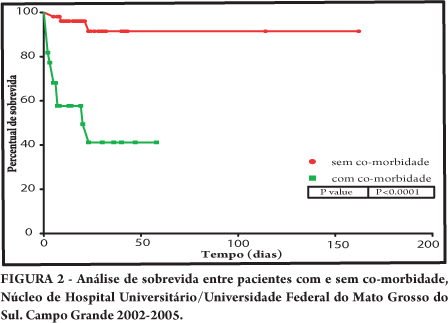INTRODUCTION: Visceral leishmaniasis is a public health problem, with lethality reaching 10%. The recommended drug treatment is methylglucamine antimoniate. This study aimed to evaluate drug use for cases of visceral leishmaniasis treated at the Infectology Clinic of the Campo Grande University Hospital Center, State of Mato Grosso do Sul. METHODS: To collect data, we examined the medical records of 76 patients with a diagnosis of visceral leishmaniasis treated at this Infectology Clinic. RESULTS: The medical files of 76 patients (56 men and 20 women; 28.9%) showed comorbidities. The first choice drug for 88.2% of the patients was N-methylglucamine antimoniate, with a fatal outcome for 18.4%. Survival analysis showed a statistically significant difference between patients with and without comorbidities (p <0.0001) and with comorbidities who used Glucantime® (p < 0.0009). The fatality rate of 18.4% indicates the low efficiency of the healthcare measures used. CONCLUSIONS: The results suggest that the prognosis becomes poor when associated with the presence of comorbidities, and that the treatment needs to be carefully administered to minimize mortality.
Visceral leishmaniasis; Drug use; Retrospective study; Survival analysis




